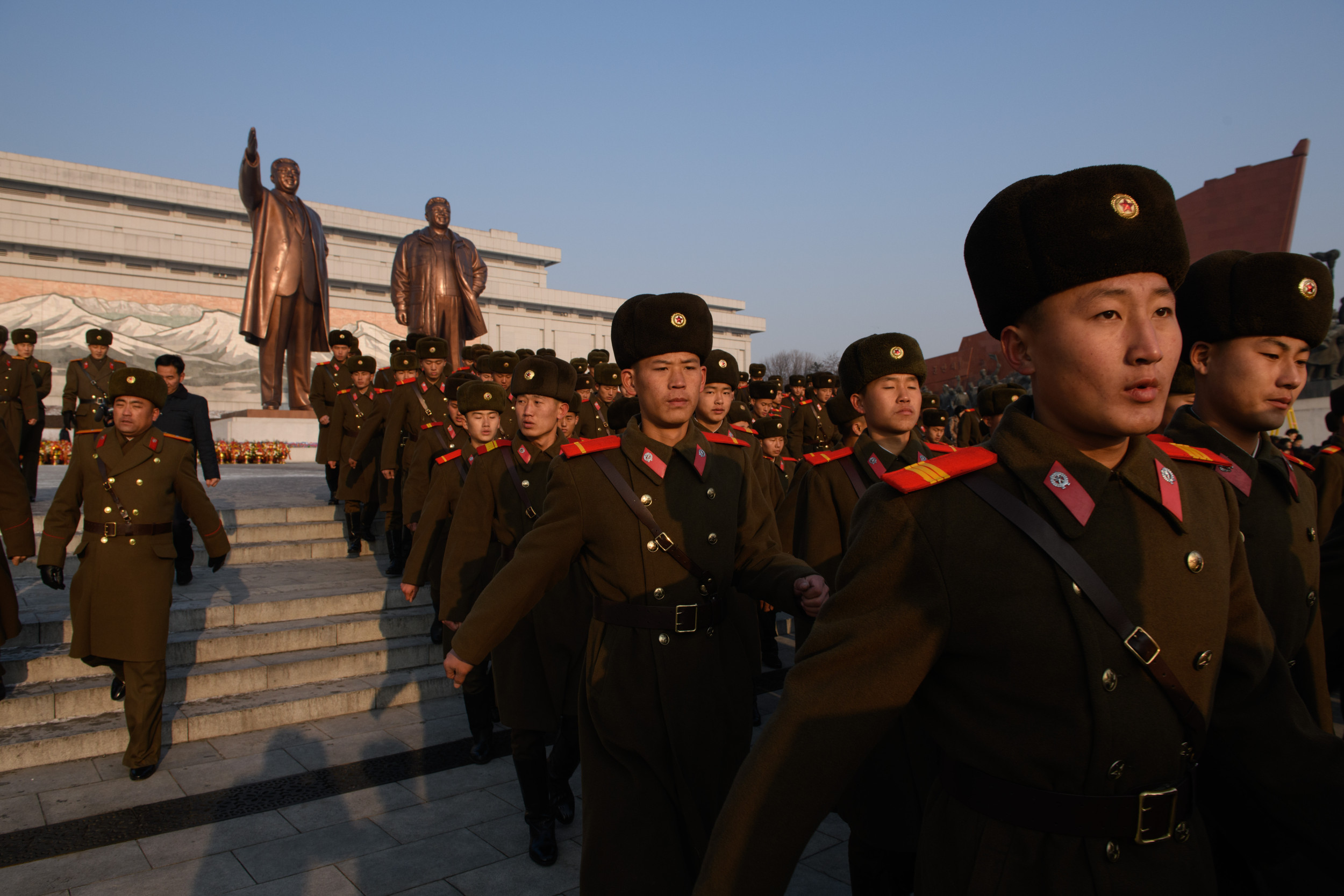Summary
A captured Russian soldier claimed North Korean troops stationed in Russia’s Kursk region endangered their allies by mistakenly firing on their own unit.
Video footage purportedly shows the soldier describing how North Koreans fired in the wrong direction during an assault, reportedly killing two Russian soldiers. North Korea has deployed around 8,000 troops to support Russia, raising international concerns about escalating conflict dynamics.
In return, North Korea is reportedly receiving money, food, and space technology from Russia. Moscow plans to form multiple units of North Korean soldiers integrated with Russian ethnic minorities.



deleted by creator
Here’s your answer, at least in theory:
https://united24media.com/latest-news/russia-allegedly-plans-to-assign-one-interpreter-for-every-30-north-korean-soldiers-ukrainian-intelligence-reports-3295
So all Ukraine needs to do is take out the interpreter, replace them with one of their own and boom 30 new troops for the Ukrainian army.
Based tactic
Wololo
I’m guessing that they’re gonna either try to have NK forces operate together, or gonna put them in roles that involve minimal interaction with other forces.
I expect that it’s some degree of problem, no matter what.
One element that’s kinda important in US military theory is the idea of the OODA loop.
https://en.wikipedia.org/wiki/OODA_loop
https://www.google.com/search?q=%2Booda+site%3Amil
The basic idea is that the smaller that loop is, the more-quickly you can react to your opponent while they’re still trying to react to your prior actions, the greater the advantage. In some cases – think the Battle of France, where at a high level France had slow response time – it can lead to staggering differences in outcome.
Language barriers exacerbate that sort of thing.
In US military history, I remember that that was blamed for a lot of problems surrounding the Battle of the Java Sea, a serious Allied naval loss.
https://en.wikipedia.org/wiki/Battle_of_the_Java_Sea
The Allies had a scratch force of American, British, Dutch, and Australian ships.
Unfortunately, these didn’t use common cryptographic mechanisms to encode communications, and the operational command was with the Dutch, who at the time didn’t work in English.
As a result, you had stuff like American reconaissance planes who would encode and transmit encoded data in English to a ship, which would decode the information, which would – assuming no extra relays were involved, which would involve more decoding and encoding – hand off the information in plaintext to a translator who knew English and Dutch, who would relay the Dutch to the person in command, who would make a decision on response, which would hand that back off to a translator, who would translate that to English, and encode and send the orders to, say, a British ship, who would decode those and relay to the ship commander, who would order people to then do something.
One of the things NATO did was establish common communication hardware and standardize on a subset of English for operational stuff to cut into the length of that loop.
Like… The front line, land mined areas…
I honestly feel bad for them. At least Russian soldiers have/had access to info outside their country. This guys are sent there believing they are the best equipped, most advanced army in the world, and they will just replace the fallen conscripts.
I read somewhere a few days ago that there’s supposed to be something like one translator per 30 (?) North Koreans. I don’t know if it’s accurate.
Honestly I’m a little surprised they don’t make them learn at least some Mandarin or Russian as soldiers, or maybe they do but at higher ranks?
The timeframe is pretty short.
That might be doable down the line if there were serious aims at long-run cooperation, but I’ve also read some articles making a case that due to divergent interest, Russia and NK probably won’t stick tightly together post-war.
Guess we’ll see.
So, like, it’s prudent to learn a few phrases, “don’t shoot, Russian” or something.
The problem is that… who’s going to believe them.